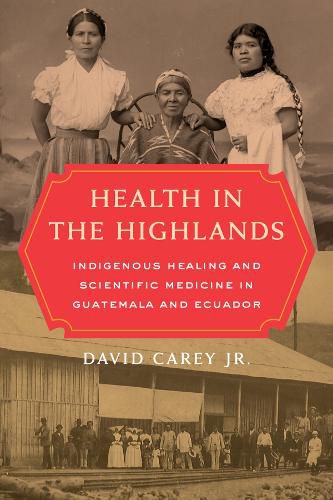Readings Newsletter
Become a Readings Member to make your shopping experience even easier.
Sign in or sign up for free!
You’re not far away from qualifying for FREE standard shipping within Australia
You’ve qualified for FREE standard shipping within Australia
The cart is loading…






In the early to mid-twentieth century, the governments of Ecuador and Guatemala sought to expand Western medicine within their countries, with the goals of addressing endemic diseases and improving infant and maternal health. These efforts often clashed with indigenous medical practices, particularly in the rural highlands. Drawing on extensive, original archival research, historian David Carey Jr. shows that indigenous populations embraced a syncretic approach to health, combining traditional and new practices. At times, the governments of both nations encouraged-or at least allowed-such a synthesis, yet they also attacked indigenous lifeways, going so far as to criminalize native medical practitioners and to conduct medical experiments on indigenous people without consent.
Health in the Highlands traces the experiences of curanderos, midwives, bonesetters, witches, doctors, and nurses-and the indigenous people they served. Carey interrogates the relationship between "progressive" public health policy and indigenous well-being, offering lessons from the past that remain relevant in the present. Our best way forward, this history suggests, may be a compassionate syncretism that joins indigenous approaches to healing with science and a pursuit of environmental and social justice.
$9.00 standard shipping within Australia
FREE standard shipping within Australia for orders over $100.00
Express & International shipping calculated at checkout
In the early to mid-twentieth century, the governments of Ecuador and Guatemala sought to expand Western medicine within their countries, with the goals of addressing endemic diseases and improving infant and maternal health. These efforts often clashed with indigenous medical practices, particularly in the rural highlands. Drawing on extensive, original archival research, historian David Carey Jr. shows that indigenous populations embraced a syncretic approach to health, combining traditional and new practices. At times, the governments of both nations encouraged-or at least allowed-such a synthesis, yet they also attacked indigenous lifeways, going so far as to criminalize native medical practitioners and to conduct medical experiments on indigenous people without consent.
Health in the Highlands traces the experiences of curanderos, midwives, bonesetters, witches, doctors, and nurses-and the indigenous people they served. Carey interrogates the relationship between "progressive" public health policy and indigenous well-being, offering lessons from the past that remain relevant in the present. Our best way forward, this history suggests, may be a compassionate syncretism that joins indigenous approaches to healing with science and a pursuit of environmental and social justice.